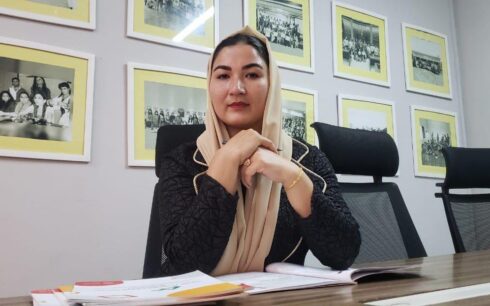The year-long ban on women’s higher education in Afghanistan has resulted in female students losing 221 days, or approximately 884 hours, of classroom education. Students express concerns over the irreparable loss and its detrimental impact on their future and the progress of Afghanistan.
In December 2022, the closure of universities for women nationwide pushed them into uncertainty. Since the Taliban’s ban 362 days ago, excluding 61 public holidays and 80 weather-related holidays, women have been denied educational rights for 221 days. According to students’ reports to Amu, they missed four hours of classes daily, including Thursdays, amounting to significant educational loss.
“Why can’t we study? We want to contribute to the country’s progress, but the restrictions on education discourage us, leading to societal regression,” Sitara Mousawi, a student affected by the ban, questioned.
“The ongoing ban has led to the misfortune of thousands of female students, isolating them from education and progress. This uncertainty leaves us confused about who will compensate for these lost years, with women and girls being the primary victims,” said Shabnam Ahmadi, another student.
Despite the ban, the Ministry of Higher Education of the Taliban scheduled three academic terms for the past year. However, the exclusion of female students during these periods has left many with a sense of loss and uncertainty about their educational future.
Some students are now considering opportunities abroad. “We’re registering for foreign scholarships, but challenges like obtaining a passport are immense. Meanwhile, many of us are confined at home, with educational institutions closed to us,” a student explained.
In response to these issues, the Taliban insists the educational ban is temporary. However, students and human rights activists find this hard to accept, given the year-long exclusion of girls and women from education.





